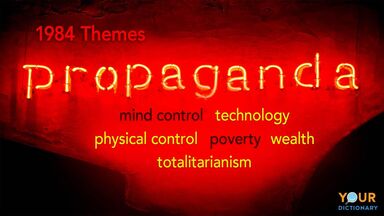Propaganda Definition
A concerted set of messages aimed at influencing the opinions or behavior of large numbers of people.
Origin of Propaganda
-
Earlier organization for the propagation of a practice or point of view from Propaganda short for New Latin Sacra Congregātiō dē Prōpagandā Fidē the Sacred Congregation for Propagating the Faith, a division of the Roman Curia established in 1622 to promote the evangelization of non-Christian peoples and the spread of the Roman Catholic Church in other Christian communities from Latin prōpāgandā ablative feminine gerundive of prōpāgāre to propagate propagate
From American Heritage Dictionary of the English Language, 5th Edition
-
From New Latin propāganda, short for Congregātiō dÄ“ Propagandā Fide, "congregation for propagating the faith", a committee of cardinals established 1622 by Gregory XV to supervise foreign missions, and properly the ablative feminine gerundive of Latin propāgō (“propagate") (see English propagation). Modern political sense dates from World War I, not originally pejorative.
From Wiktionary
Related Articles
Find Similar Words
Find similar words to propaganda using the buttons below.





